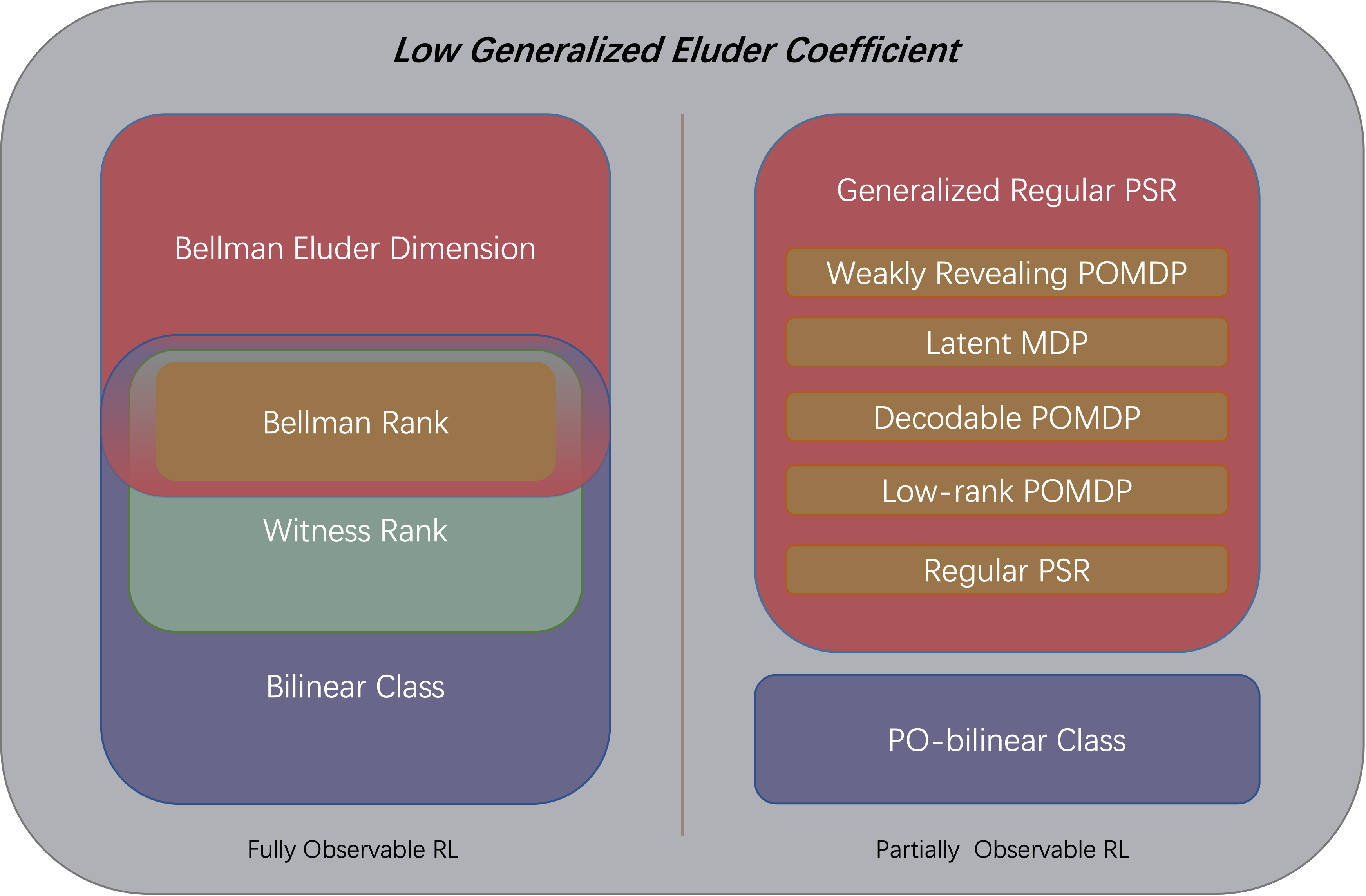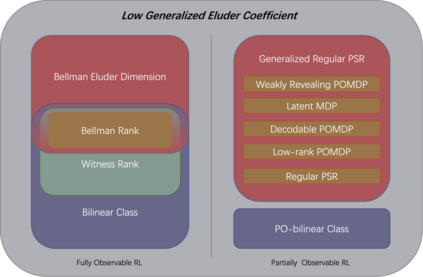We study sample efficient reinforcement learning (RL) under the general framework of interactive decision making, which includes Markov decision process (MDP), partially observable Markov decision process (POMDP), and predictive state representation (PSR) as special cases. Toward finding the minimum assumption that empowers sample efficient learning, we propose a novel complexity measure, generalized eluder coefficient (GEC), which characterizes the fundamental tradeoff between exploration and exploitation in online interactive decision making. In specific, GEC captures the hardness of exploration by comparing the error of predicting the performance of the updated policy with the in-sample training error evaluated on the historical data. We show that RL problems with low GEC form a remarkably rich class, which subsumes low Bellman eluder dimension problems, bilinear class, low witness rank problems, PO-bilinear class, and generalized regular PSR, where generalized regular PSR, a new tractable PSR class identified by us, includes nearly all known tractable POMDPs and PSRs. Furthermore, in terms of algorithm design, we propose a generic posterior sampling algorithm, which can be implemented in both model-free and model-based fashion, under both fully observable and partially observable settings. The proposed algorithm modifies the standard posterior sampling algorithm in two aspects: (i) we use an optimistic prior distribution that biases towards hypotheses with higher values and (ii) a loglikelihood function is set to be the empirical loss evaluated on the historical data, where the choice of loss function supports both model-free and model-based learning. We prove that the proposed algorithm is sample efficient by establishing a sublinear regret upper bound in terms of GEC. In summary, we provide a new and unified understanding of both fully observable and partially observable RL.
翻译:在互动决策的总体框架下,我们研究高效强化学习(RL),这包括Markov决策程序(MDP)、部分可见的Markov决策程序(POMDP),以及作为特例的预测性国家代表(PSR)等互动决策总框架下的高效强化学习(RL)的抽样。为了找到能够增强样本高效学习的最低限度假设,我们提出了一种新的复杂度标准,即通用 Eluder 系数(GEC ),这是在线互动决策中勘探与开发之间的根本权衡。具体地说,GEC通过将预测更新政策的执行情况与评估历史数据的模拟培训错误(MDP ) 来比较探索的难度。 我们表明,低GEC 的 RL 问题构成一个非常丰富的阶级, 其次的次, 其次的次的次, 其次的 其次的 其次, 其次的 其基础是高层次的 Bellman eluder 层面问题、 双线级级、低级证人级别问题 常规 PSR, 其普遍化常规的PSR, 包括我们确认的一个新的可移植 POM 和PRODP 。





